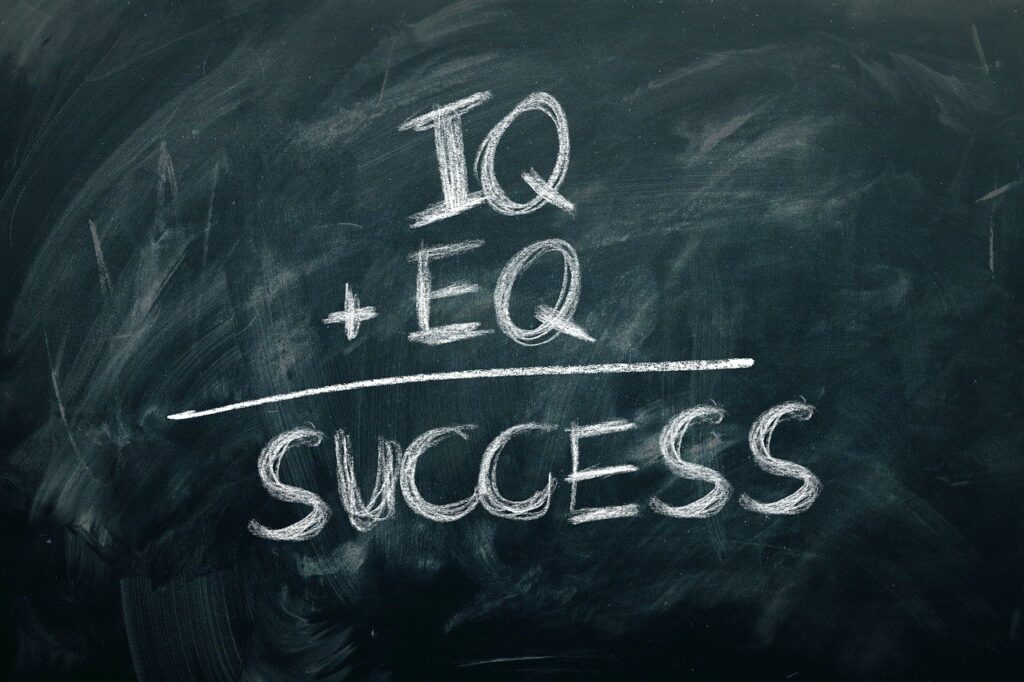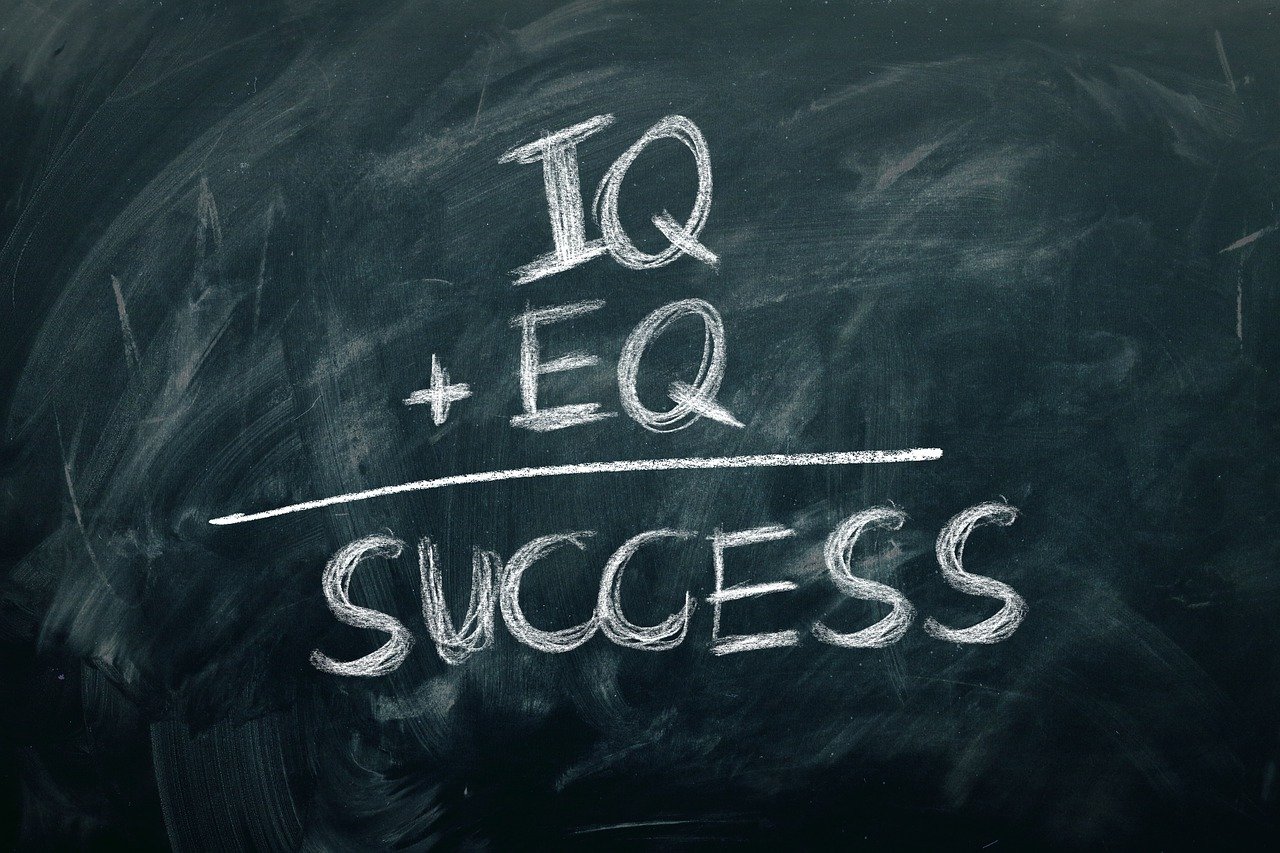Intelligence: 7 Simple Habits to Enhance /Boost Your Brainpower in 2025
Intelligence?
Human intelligence, a complex and multifaceted construct, has been a subject of fascination and inquiry for centuries. It is the cognitive ability that enables us to perceive, learn, reason, understand, and adapt to our environment. While the exact nature of intelligence remains a topic of ongoing debate among scientists and philosophers, several key aspects characterize it. Intelligence isn’t just about genetics; it’s also about the choices we make every day.

Cognitive Processes
At its core, human intelligence involves a myriad of cognitive processes that work in concert to produce intelligent behaviour. These processes include:
- Perception: The ability to interpret sensory information from the environment, such as sight, sound, touch, taste, and smell.
- Attention: The ability to focus on specific stimuli while ignoring others.
- Memory: The ability to encode, store, and retrieve information.
- Learning: The ability to acquire new knowledge and skills through experience.
- Reasoning: The ability to think logically and draw conclusions from information.
- Problem-solving: The ability to identify and solve problems.
- Creativity: The ability to generate novel ideas and solutions.
Types of Intelligence
While traditional intelligence tests often focus on cognitive abilities such as verbal and mathematical reasoning, there is growing recognition that intelligence is a multifaceted construct that encompasses various forms:
- Fluid intelligence: The ability to reason abstractly and solve novel problems.
- Crystallized intelligence: The ability to apply knowledge and skills acquired through experience.
- Emotional intelligence: The ability to understand and manage one’s own emotions and the emotions of others.
- Social intelligence: The ability to interact effectively with others and navigate social situations.
- Spatial intelligence: The ability to visualize and manipulate objects in three-dimensional space.
- Musical intelligence: The ability to perceive, produce, and understand music.
- Bodily-kinesthetic intelligence: The ability to control one’s body movements and coordinate them with the environment.
Factors Influencing Intelligence
Intelligence is influenced by a complex interplay of genetic and environmental factors. While genetics play a significant role in determining intelligence, environmental factors such as education, nutrition, and early childhood experiences can also have a profound impact.
Measuring Intelligence
Intelligence is typically measured using standardized intelligence tests, such as the Stanford-Binet Intelligence Scale and the Wechsler Adult Intelligence Scale. These tests assess a range of cognitive abilities, including verbal reasoning, quantitative reasoning, and spatial reasoning.
Seven Simple Habits That Can Help You Become Smarter and More Mentally Agile:
- Keep Learning: Stay curious and always seek new knowledge. Read books, take online courses, attend workshops, or pick up new hobbies that challenge your mind.
- Take Care of Your Body: Physical health is closely linked to brain health. Regular exercise, a balanced diet, and enough sleep can improve your memory, focus, and overall cognitive function.
- Have Meaningful Conversations: Talk with people who challenge your thinking and expose you to new ideas. These conversations can broaden your perspective and sharpen your critical thinking skills.
- Play Brain Games: Engage in puzzles, brain teasers, and strategic games. These activities can enhance your problem-solving skills, memory, and mental agility.
- Practice Mindfulness: Mindfulness and meditation can improve your focus and concentration. A calm and centred mind is better at making decisions and processing information.
- Try New Things: Step out of your comfort zone by trying new activities, visiting new places, or learning new skills. New experiences can increase your brain’s adaptability and flexibility.
- Get Quality Sleep: Aim for 7-8 hours of good sleep each night. Sleep helps your brain consolidate memories and process information, making you more effective during the day.
Intelligence is not fixed; it’s something you can develop with effort and smart habits. By incorporating these seven habits into your daily life, you can unlock your full intellectual potential.
Keep Learning

Learning is a lifelong journey that keeps your mind sharp and engaged. When you continuously seek new knowledge, you stimulate your brain and enhance your cognitive abilities. Here are some ways to keep learning:
 Read Books: Books are a treasure trove of knowledge. Whether it’s fiction, non-fiction, or academic texts, reading can expand your vocabulary, improve your comprehension skills, and introduce you to new ideas and perspectives.
Read Books: Books are a treasure trove of knowledge. Whether it’s fiction, non-fiction, or academic texts, reading can expand your vocabulary, improve your comprehension skills, and introduce you to new ideas and perspectives.
- Take Online Courses: The internet is full of educational resources. Platforms like Coursera, Udemy, and Khan Academy offer courses on a wide range of subjects. You can learn at your own pace and gain new skills that can boost your intelligence.
- Attend Workshops: Workshops and seminars provide hands-on learning experiences. They allow you to interact with experts and peers, ask questions, and engage in discussions that can deepen your understanding of a topic.
 Engage in Hobbies: Hobbies that challenge your mind, such as playing a musical instrument, painting, or learning a new language, can enhance your cognitive abilities. These activities require concentration, problem-solving, and creativity, all of which contribute to brain health.
Engage in Hobbies: Hobbies that challenge your mind, such as playing a musical instrument, painting, or learning a new language, can enhance your cognitive abilities. These activities require concentration, problem-solving, and creativity, all of which contribute to brain health.
Take Care of Your Body;  Your physical health has a direct impact on your brain function. When you take care of your body, you also take care of your mind. Here are some tips to maintain physical health:
Your physical health has a direct impact on your brain function. When you take care of your body, you also take care of your mind. Here are some tips to maintain physical health:
- Exercise Regularly: Physical activity increases blood flow to the brain, which can improve memory and cognitive function. Aim for at least 30 minutes of moderate exercise, such as walking, jogging, or cycling, most days of the week.
 Eat a Balanced Diet: A diet rich in fruits, vegetables, whole grains, lean proteins, and healthy fats provides the nutrients your brain needs to function optimally. Foods like fish, nuts, and berries are particularly beneficial for brain health.
Eat a Balanced Diet: A diet rich in fruits, vegetables, whole grains, lean proteins, and healthy fats provides the nutrients your brain needs to function optimally. Foods like fish, nuts, and berries are particularly beneficial for brain health.
- Get Enough Sleep: Sleep is essential for brain health. During sleep, your brain consolidates memories and processes information. Aim for 7-8 hours of quality sleep each night to ensure your brain is well-rested and ready to perform at its best.
Have Meaningful Conversations
Engaging in meaningful conversations with others can stimulate your mind and enhance your cognitive abilities. Here are some ways to have more meaningful conversations:
- Seek Out Diverse Perspectives: Talk to people from different backgrounds and with different viewpoints. This can expose you to new ideas and challenge your thinking, helping you develop a more well-rounded perspective.
- Ask Open-Ended Questions: Open-ended questions encourage deeper discussions and critical thinking. Instead of asking yes-or-no questions, ask questions that require thoughtful responses and elaboration.
- Listen Actively: Active listening involves fully focusing on the speaker, understanding their message, and responding thoughtfully. This can improve your communication skills and help you gain new insights from the conversation.
Play Brain Games: Brain games are a fun and effective way to keep your mind sharp. They challenge your cognitive abilities and help improve your problem-solving skills, memory, and mental agility. Here are some types of brain games to try:
 Puzzles: Jigsaw puzzles, crossword puzzles, and Sudoku are great for exercising your brain. They require concentration, pattern recognition, and logical thinking.
Puzzles: Jigsaw puzzles, crossword puzzles, and Sudoku are great for exercising your brain. They require concentration, pattern recognition, and logical thinking.- Brain Teasers: Brain teasers are short puzzles that challenge your thinking and problem-solving skills. They can be found in books, online, or in apps designed for brain training.
- Strategic Games: Games like chess, checkers, and strategy-based
 video games require planning, foresight, and critical thinking. Playing these games regularly can enhance your cognitive abilities.
video games require planning, foresight, and critical thinking. Playing these games regularly can enhance your cognitive abilities.
- Practice Mindfulness

Mindfulness is the practice of being present and fully engaged in the moment. It can help reduce stress, improve focus, and enhance cognitive function. Here are some ways to practice mindfulness:
- Meditation: Meditation involves sitting quietly and focusing on your breath or a specific thought. It can help calm your mind and improve your ability to concentrate.
- Mindful Breathing: Take a few minutes each day to focus on your breathing. Pay attention to the sensation of the breath entering and leaving your body. This can help you stay grounded and present.

- Mindful Activities: Engage in activities mindfully by paying full attention to what you are doing. Whether it’s eating, walking, or washing dishes, being fully present in the moment can enhance your awareness and cognitive function.
Try New Things
Trying new things can stimulate your brain and enhance its adaptability. When you step out of your comfort zone, you challenge your brain to learn and grow. Here are some ways to try new things:
- Explore New Activities: Take up a new hobby, such as painting, dancing, or cooking. These activities can challenge your brain and help you develop new skills.
- Visit New Places: Traveling to new places exposes you to different cultures,
 languages, and experiences. This can broaden your perspective and enhance your cognitive flexibility.
languages, and experiences. This can broaden your perspective and enhance your cognitive flexibility. - Learn New Skills: Whether it’s learning a new language, playing a musical instrument, or mastering a new technology, acquiring new skills can keep your brain engaged and adaptable.
Get Quality Sleep
Sleep is crucial for brain health. It allows your brain to rest, recover, and process information. Here are some tips for getting quality sleep:
- Establish a Sleep Routine: Go to bed and wake up at the same time every day, even on weekends. This can help regulate your body’s internal clock and improve the quality of your sleep.
- Create a Sleep-Friendly Environment: Make your bedroom a comfortable and relaxing place. Keep it cool, dark, and quiet, and invest in a comfortable mattress and pillows.

- Limit Screen Time Before Bed: The blue light emitted by screens can interfere with your sleep. Try to avoid using electronic devices at least an hour before bedtime.
By incorporating these seven habits into your daily routine, you can boost your intelligence and unlock your full potential. Remember, intelligence is not fixed; it’s something you can develop and enhance with effort and smart choices. Start today and embark on a journey of continuous intellectual growth.
The Future of Intelligence
As technology continues to advance, there is increasing interest in understanding and harnessing artificial intelligence (AI). AI systems are designed to mimic human intelligence by performing tasks that require cognitive abilities, such as learning, reasoning, and problem-solving. While AI has made significant strides in recent years, it is important to note that human intelligence remains a complex and multifaceted phenomenon that is difficult to fully replicate.
Conclusion
Human intelligence is a remarkable cognitive ability that enables us to perceive, learn, reason, understand, and adapt to our environment. While the exact nature of intelligence remains a topic of ongoing research, it is clear that it is a multifaceted construct that is influenced by a complex interplay of genetic and environmental factors. As we continue to explore the mysteries of human intelligence, we may gain valuable insights into the nature of consciousness, creativity, and the human condition.
Citations:
Begley, S. (2007). *The power of the brain: The new frontier in neuroscience*. Random House.
Colcombe, S., & Kramer, A. F. (2005). Fitness effects on the human brain. *Journal of Applied Physiology*, 98(4), 1505-1513.
Epley, N., & Gilovich, T. (2016). *The judgment bias reader*. Duke University Press.
Diamond, A. (2011). Why does it take over a decade to develop? In *The science of thinking: How the brain works* (pp. 265-288). Cambridge University Press.
Hölzel, L., Lazar, S. W., Gardt, S., Chapin, J. N., & Davidson, R. J. (2011). Meditation, mindfulness, and the regulation of emotion. Wiley Interdisciplinary Reviews: Cognitive Science*, 2(1), 199-210.
Kelly, A. M., Quinn, P., & Fusco, E. N. (2008). The more things change, the more they stay the same. Maintaining cognitive flexibility through life. *Brain Research*, 1246, 146-155.
Vogel, G., Born, J., & Singer, W. (2009). Sleep and the processing of emotional memories. *Trends in Cognitive Sciences*, 13(3), 128-135.
Disclaimer: The contents of this article are intended to raise awareness about common health issues and should not be viewed as sound medical advice for your specific condition. You should always consult with a licensed medical practitioner before following any suggestions outlined in this article or adopting any treatment protocol based on the article’s contents.
Weak People Revenge. Strong People Forgive. Intelligent People Ignore.
If you enjoyed this article, please like and share it with your friends, and don’t forget to subscribe for more great content!



